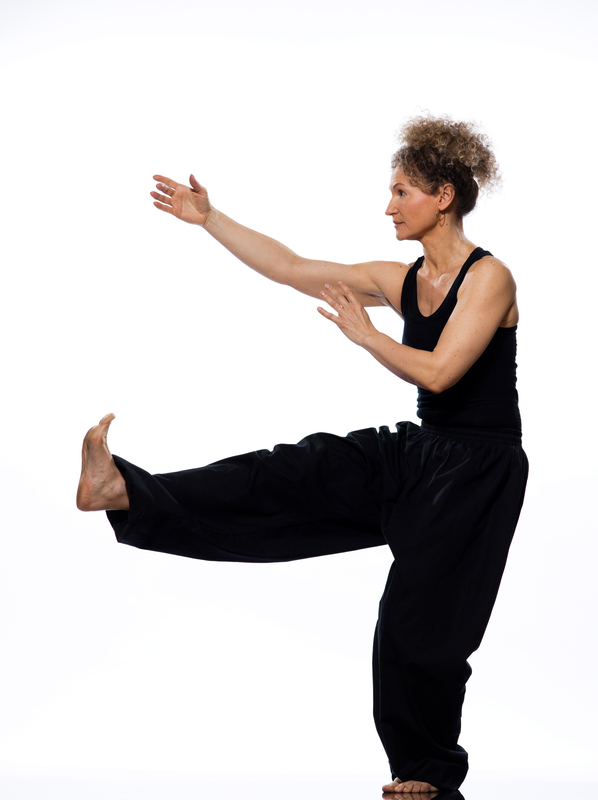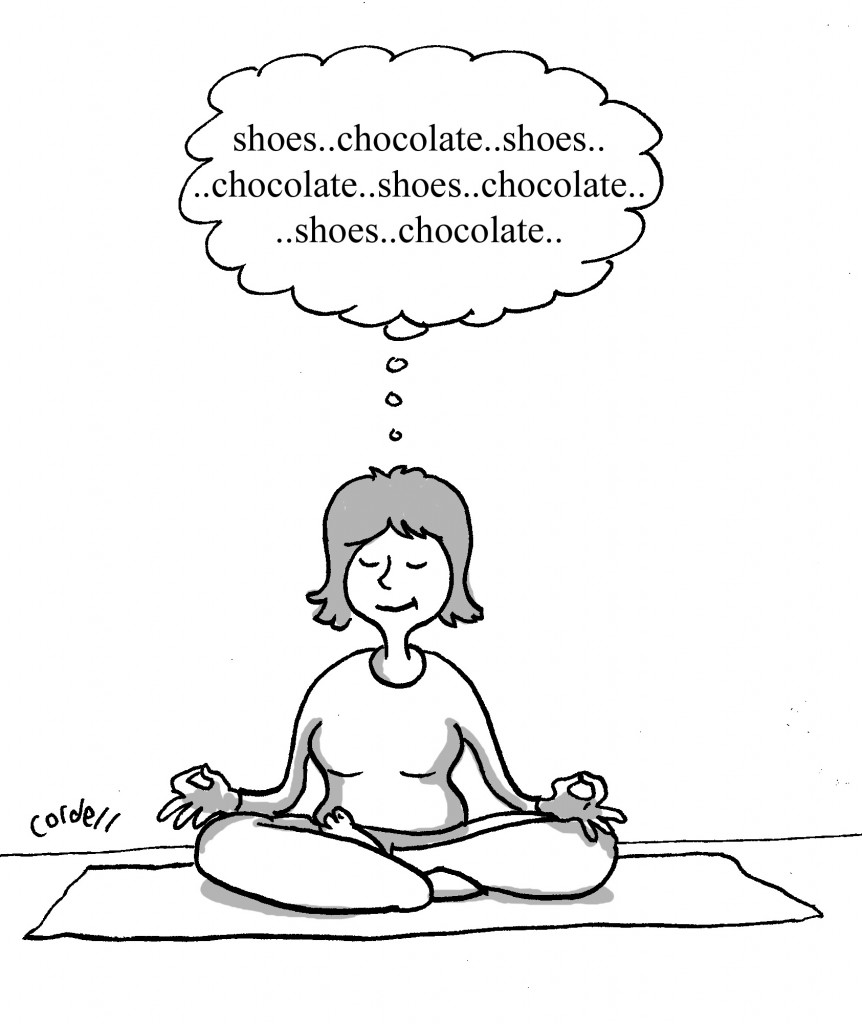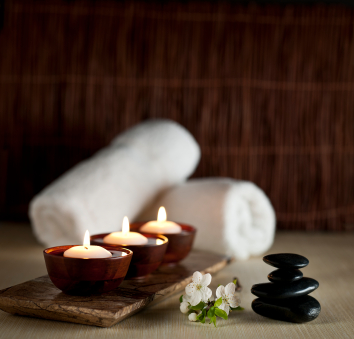Wednesday Bubble: No mystique, just perseverance
 Time for another menopause downer…followed by some good news! First the downer: declining levels of estrogen during menopause tend to reinforce a decline in the body’s ability to naturally metabolize blood fats and its ability to fight off the ravages of oxygen-free radicals, you know, free roaming oxygen ions that can wreak havoc on the immune system. The result is often an upsurge in heart and other metabolic diseases. You can read more about those conditions here.
Time for another menopause downer…followed by some good news! First the downer: declining levels of estrogen during menopause tend to reinforce a decline in the body’s ability to naturally metabolize blood fats and its ability to fight off the ravages of oxygen-free radicals, you know, free roaming oxygen ions that can wreak havoc on the immune system. The result is often an upsurge in heart and other metabolic diseases. You can read more about those conditions here.
Okay, so the good news: it appears that Tai Chi training may help increase the body’s antioxidant defenses in both pre- and post-menopausal women! In fact, in a study published a few years ago in the Journal of Aging Research, investigators noted a marked change in antioxidant markers normally related to aerobic exercise, as well as a decline in a marker for heart disease risk.
For those of you unfamiliar with Tai Chi, it is an ancient Chinese martial art form that combines breathing with smooth, gentle postures. It may look fairly tame, however, having studied Tai Chi for a short period of time, I can assure you that it’s damn hard. Moreover, despite appearances, it is a weight-bearing exercise that not only strengthens muscles but also is on par with moderate intensity aerobic exercise. It has also been shown to improve mobility, flexibility and balance, improve sleep and overall wellbeing, and even enhance the circulation of blood through the smallest of blood vessels.
I’ve written about the effect of breathing on stress and the body’s stress markers. However, it appears that when Tai Chi is combined with slow and deep breathing exercise (i.e. 6 breaths per minutes) overall benefits are boosted. Indeed, two, 75-minute Tai Chi sessions a week combined with two hours of at home practice appeared to do just what the doctor ordered. These sessions involved 10 min of warm up/stretching, 60 minutes of Tai Chi (45 minutes 18-posture Tai Chi and 15 min Tai Chi Fan Style) and an initial check in period. In addition to the slow, rotational, fluid movements (1.5 minutes per motion), the women participating in the study were taught to control their breathing. Over the eight weeks, they also underwent blood and had physical fitness evaluations.
The findings? Tai Chi training improved balance, flexibility and leg extension strength in all of the women regardless of menopausal status. LDL cholesterol was also lowered. And, as mentioned, markers for antioxidant activity increased significantly while a marker for heart disease risk decreased.
Tai Chi is low impact and is especially valuable for women who may not be physically able to boost their aerobic routines. What’s more, once mastered, it can be practiced in the privacy of one’s own home. Once again, the mind-body connection proves to be pretty darn cool and important to health and wellness! This time, it might take some practice but perseverance rules the day! “There is no mystique to Tai Chi Chuan. What is difficult is the perseverance. It took me ten years to discover my chi, but thirty years to learn how to use it. Once you see the benefit, you won’t want to stop.” – Ma Yueh Liang
Read MoreFriday Folly: Mind-Body Medicine
Personally, I am a huge fan of mind-body medicine.
You?
Have a beautiful weekend!
Read More
Make ‘Em Laugh
“Don’t you know everyone wants to laugh?”
Truly, is there anything better than a deep, uncontrollable, tear streaming down your face, belly aching laugh?
However, besides the sheer joy that laughter brings, did you know that it also lowers stress and benefits the heart and boosts immunity? Laughter reduces tension and anxiety, raises self esteem, hope, energy, enhances memory and creativity, improves interpersonal interactions, builds unity and solidarity. Laughter is essential to happiness and overall wellbeing. Laughter positively affects our muscles, our breathing, our hormones and our nervous systems. In fact, at its core, laughter incorporates the entire mind-body construct. Moreover, although laughter is contagious, it has few side effects.
Yet, does simulated laughter yield the same benefits?
In case you are wondering what I’m referring to, simulated laughter is the foundation of laughter yoga, a worldwide movement that focuses on laughter exercises, including:
- Pantomime followed by laughter
- Physical greetings followed by laughter
- Dancing and singing (and laughing exercises)
- Laughing alone
- Laughing meditations
Simulated laughter works in large groups, in pairs and can be playful or exaggerated. The theory underlying simulated laughter is that while the mind can distinguish between spontaneous and simulated laughter, the body cannot. Importantly, research bears this out, and a number of scientifically controlled studies have shown that simulated laughter can lead to reductions in blood pressure, improvements in stress hormone levels, positively affect depression and insomnia and even improve anxiety in chronic pain patients. Regular simulated laughter sessions can be used as effective coping strategies and benefit workplace morale. Even smiling can yield positive effect.
Can anyone do it? Well, clearly, anyone can laugh. But simulated laughter is a technique that is most effective when it’s learned, practiced and developed. Not surprisingly, laughter yoga clubs have popped up across the nation, touting messages of helping people gain a happiness advantage. And data provide sufficient evidence that ‘laughter has positive, quantifiable physiological and psychological effects on certain aspects of health.”
Make em laugh? You bet:
Ah ha ha ha ha ha há
Ah ha ha ha ha ha
Ah ha ha ha ha ha ha
Ah ha ha ha ha ha ha ha ha
Make ’em laugh, ah ah!
Make ’em laugh, ah ah!
Make ’em laugh, ah ah!
Make ’em laugh
Make ’em laugh
Make ’em laugh!
-Donald O’Connor, Singin’ in the Rain
Read MoreJust breathe
Want to reduce the frequency of your flashes?
Just breathe.
I’m serious. Just as serious as Mayo Clinic researchers who recently published a study about paced breathing in the online version of Menopause. If you are unfamiliar with the term, paced breathing refers to slow, deep breathing from the diaphragm.
Although experts are still unclear as to the underlying cause of hot flashes, they believe that they are related to a dysfunction in a process called ‘thermoregulation;’ this is the ability to keep our body temperature in a steady state, even when the environment changes. A decrease in estrogen levels, coupled with increased activation of the sympathetic nervous system (which assists in controlling the body’s functions and the fight or flight mechanism) narrows the natural comfort zone and tolerance for temperature fluctuations. Voila! A flash is believed to be born.
So where does paced breathing fit in? Here’s the interesting part: paced breathing decreases the activity of the sympathetic nervous system. So, when the nervous system goes into overdrive, paced breathing can theoretically calm the waters. However, as we go through our busy lives, is regular paced breathing even feasible?
To find out, 105 women were provided with either audio recordings of chimes that paced their breathing or were asked to simply breathe normally. All of the women reported having at least 14 or more hot flashes a week, and they also a history of breast cancer. Women assigned to paced breathing were asked to use their audio recordings either once or twice a day and practice taking 6 breaths per minute for 15 minutes. The other women practiced regular breathing (14 breaths per minute) for 10 minutes a day. All of the women kept a daily hot flash diary.
Over nine weeks, women who practiced paced breathing twice a day reported reductions in daily hot flashes by 52%. Paced breathing practiced once a day reduced hot flashes by 42%. What’s more, women who didn’t slow their breathing deliberately but simply focused on it 10 minutes a day reduced the frequency of their hot flashes by 46%; this suggest that focusing can help alleviate symptoms and that some sort of placebo effect is at play. Still, other studies have similarly reported reductions in hot flash frequency by as much as 50% using progressive muscle relaxation which also has a positive effect on the nervous system. In fact, I just wrote about relaxation and flashes last week.
Most of the women found it challenging to fit 30 minutes of paced breathing into their day, which suggests that perhaps intensifying the effort once a day can provide the same beneficial results. For the most part, there was some initial dizziness but it was mostly mild and likely the result of significantly slowing breathing; more practice would probably help to ameliorate this effect.
It seems to me that it is possible to move away from drugs and towards the body and mind to balance our internal thermostats. The bottom line appears to be that a bit of effort can potentially a long way towards solving a problem that has long eluded the medical community.
Just breathe.
Read MoreIs a spa retreat the key to your soul’s estate?
(S)he enjoys true leisure who has time to improve his soul’s estate. – Henry David Thoreau
If you are anything like me, you’ve worked yourself to the nth degree and are in need of rejuvenation. After all, your soul’s estate is only as valuable as its upkeep, right? However, is there any proven benefits to a spa retreat beyond that incredible boost of endorphins that feed an overall sense of wellbeing?
Evidently, there really is! In fact, contrary to what many believe, newly-published research in Integrative Medicine suggests that the combination of caloric restriction, colonic therapy, meditation and yoga may provide the body with actual physiological benefits beyond the feeling of wellness. Mind you, certain practices like caloric restriction can be downright dangerous if not effectively carried out, reducing much needed vitamins and minerals, resulting in a loss of lean body mass and even taxing the heart. Colonic hydrotherapy, i.e. removing toxins from the intestines, has likewise been questioned, namely because there are few data to support claims of therapeutic benefit and without proper guidance, may result in nausea, vomiting, dehydration and electrolyte imbalance.
However, in this very small study of 15 healthy women and men, a one-week, intensive spa program that focused on three main areas – calories, toxins and stress management — yielded some surprising results. Roughly three to four days before a week at the spa, the participants switched out their normal eating habits for fruit, raw and steamed veggies, salads, juices and herbal teas, 2 tablespoon of olive oil at bedtime, 8 oz of prune juice every morning and laxative teas at night. They were also asked to avoid potatoes, bananas, all grains, pasta, meat, dairy, processed foods, caffeine and alcohol.
At the spa, all received at least four colonic treatments and did 800 calorie juice-fast cleanses (all herbal teas, veg/fruit juices, probiotics, digestive enzymes, herbal laxatives, olive oil, vegetarian liquid protein supplements, vegetarian soup and water with lemon). They also participated in daily structured meditation and yoga programs as well as personal meditation to boost deep breathing, heightened awareness and calm.
The findings? Clearly, all participants dropped weight, which is to be well expected from caloric restriction; this weight loss averaged about 7 pounds. Likewise, there was expected decrease in blood pressure. Blood fat levels, namely total cholesterol, also benefitted, and levels of mercury declined in some participants, which supports the hypothesis that this type of program can help clear the body of certain toxins. Not surprisingly, the researchers also noted a significant decrease in stress, depression and anxiety and saw improvements in anger levels, tension and fatigue. Spirituality scores also improved, probably as a result of meditation and the group appeared to be more intensely unified than before the spa visit.
Researchers say that while the study is quite small, it appears that intensive spa programs may have some real benefits. One thing to note is that the participants experienced changes in sodium and chloride levels. This indicates that some of these interventions do affect electrolyte levels and therefore, can be risky in people who are predisposed to imbalances or on certain medications like diuretics. The researchers also recommend that before participating in ‘extreme spa,’ that you have a complete physical to insure that your body is up to the task.
Extreme spa or gentle spa that focuses on health, balance and internal (re)connection. All may hold the key to estate management. Your soul will thank you!
Read MoreI put a spell on you: hot flashes and hypnosis
I have written about the potential of hypnosis for ameliorating troublesome vasomotor symptoms previously, although earlier studies have focused on hot flashes in relation to breast cancer therapy. You can find those posts, and links to earlier reports, here.
Personally? I like hypnosis.
I was hypnotized several decades back by a source for another story that I was writing and recall how relaxing it felt. This particular clinician focused on teaching patients the art of self hypnosis for use in speeding recovery from surgery and the like. But I digress..
Hypnosis for menopausal symptoms? Why not?!
In a study that appears online in the Menopause journal, Dr. Gary Elkins from Baylor’s Mind-Body Medicine Research Laboratory explores the potential of clinical hypnosis — described as a “mind-body therapy to facilitate a hypnotic state, coolness and control of symptoms” — in a field where the effectiveness of alternative strategies continues to be challenged by mainstream medicine.
He write that while menopausal symptoms like hot flashes generally start to decline 5 to 7 years after menopause, they may persist in some women for up to a whopping 20 years!!!! Moreover, non-hormonal pharmacological options, e.g. antidepressants and anticonvulsants may seem promising but between side effects and the need to comply strictly to dosing regimens, they may not be a viable or reasonable option for many. Additionally, in the early studies conducted in breast cancer survivors, clinical hypnosis led to as much as a 69% reduction in hot flashes over the course of these trials,findings that are comparable if not better than those seen in women taking Effexor or Paxil.
This time, 187 women who reported having at least 50 hot flashes a week (or seven a day) participated in clinical hypnosis or a training called ‘structured attention control’ five times a week for three months. Women who were hypnotized were given specific suggestions for mental imagery for coolness, safe places and relaxation with the goals of reducing hot flashes and improving sleep. Each session lasted 45 minutes and were recorded, so that the women could practice self-hypnosis at home. In the structured attention session, also 45 minutes long, each woman and a clinician discussed symptoms, exchanged personal information, received guidance on how to avoid negative suggestions and were encouraged. While these sessions not recorded, the women brought home a CD that provided information about hot flashes and were required to listen to it daily.
The findings are pretty impressive. Elkin reports that over the first 6 weeks, women receiving hypnosis had a mean decrease in their hot flashes of almost 64% compared to only 9% in women who had structured attention training. These reductions continued towards the end of the study, leading to a 74% decline in hot flashes compared to the beginning of the study (during the same timeframe, women in the second group only experienced overall reductions of 17%). The severity of hot flashes also significantly declined over the course of the study by as much as 80% among hypnotized women (and only 15% among the structured attention group). What’s more, when hot flashes were actually monitored by a scientific instrument (rather than self-reports) findings were still impressive, with almost a 57% reduction in hot flashes in the hypnosis group and only a 10% reduction in the structured attention group. These women also reported better sleep quality and that their hot flashes interfered less in their daily activities than previously.
Research into pharmacological therapies and alternative therapies confirm that there is always a placebo effect at play. With regard to hot flashes in particular, this placebo effect is evidently substantial. And, with regards to mind-body therapies in particular, some women are negatively predisposed to achieving results, and either are not willing to make the commitment that is necessary for them to work. However, this is not much different than any regimen; if you are not committed to the process, you probably won’t see the best results.
Elkin writes that they still don’t know why hypnosis might work for hot flashes, although it might have something to do with improvements in heart rate and blood pressure (via a process known as ‘parasympathetic tone’). However, if it works, do we really need to know how?
Got severe hot flashes? You might want to delve into that spell before you try drug therapy. If anything, you’ll come out feeling a heck of a lot more relaxed!
Read More








